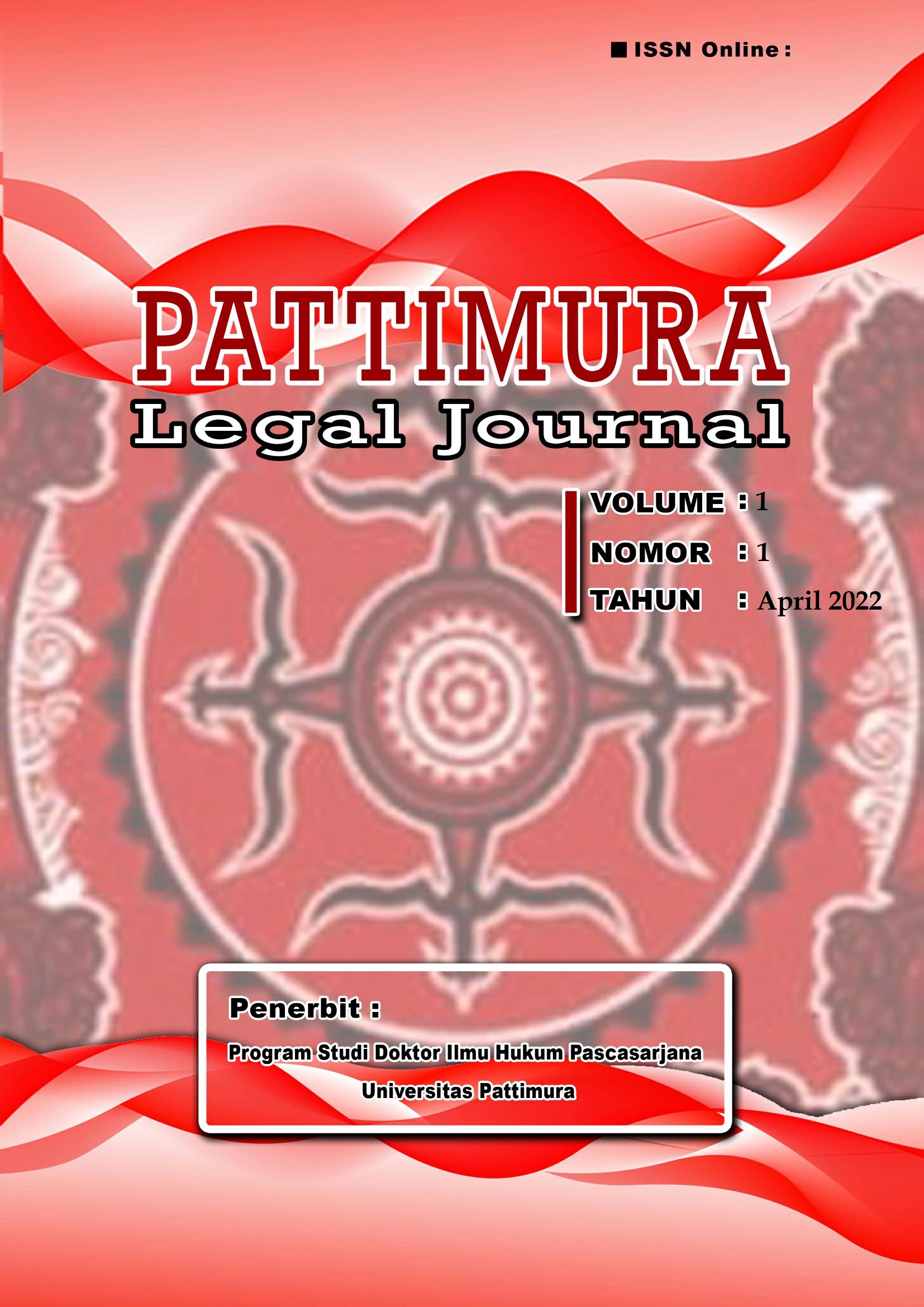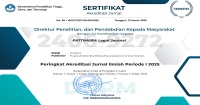Ratio Decidendi Terhadap Amar Putusan Pengadilan Tata Usaha Negara pada Perkara Pemberhentian Tidak Dengan Hormat Aparatur Sipil Negara Terpidana Korupsi
Abstract
Introductioan: The ratio decidendi or the judge's legal considerations is the most important thing in determining the decision because there are aspects that must be considered. Ratio decidendi is a process that will produce a decision. In practice, namely at the State Administrative Court, it was found the fact that the employment dispute, namely dishonorable dismissal, had a different decision.
Purposes of the Research: This study aims to determine the ratio decidendi that produces different decisions. The purpose of this research will be to answer the anxiety and curiosity about the ratio decidendi of the dispute regarding the dishonorable dismissal.
Methods of the Research: This writing method is normative juridical, with the type of library research, which uses a law approach, with the hope of answering the problems faced.
Results of the Research: The difference in the decision of course must be drawn on the ratio decidendi which considers the authority to adjudicate, procedural and substantive aspects as well as aspects of the grace period. These three aspects will be the main focus in dissecting the ratio decidendi in each decision so that differences will be found. The consistency of the ratio decidendi can affect the legal certainty received by the parties.
Downloads
References
Jurnal:
Astomo, Putera. “Eksistensi Peradilan Administrasi Dalam Sistem Negara Hukum Indonesia.” Jurnal Yiridis 1, no. 1 (2014): 42–56.
Nuna, Muten, Roy Marthen Moonti, Arifin Tumuhulawa, and Dince Aisa Kodai. “Kewenangan Penyelesaian Sengketa Tata Usaha Negara Terhadap Putusan Pemberhentian Tidak Dengan Hormat.” University of Bengkulu Law Journal 5, no. 2 (2020): 106–18. https://doi.org/10.33369/ubelaj.5.2.106-118.
Buku:
Hadjon, Philipus M. Perlindungan Hukum Bagi Rakyat Indonesia: Sebuah Studi Tentang Prinsip-Prinsipnya, Penanganannya Oleh Pengadilan Dalam Lingkungan Peradilan Umum Dan Pembentukan Peradilan Administrasi. Surabaya: Peradaban, 2007.
Indroharto. Usaha Memahami Undang-Undang Tentang Peradilan Tata Usaha Negara. Jakarta: Pustaka Sinar Harapan, 2002.
Marzuki, Peter Mahmud. Penelitian Hukum,. Jakarta: Kencana, 2016.
Pratiwi, Cekli Setya, Christina Yulita, Fauzi, and Shinta Ayu Purnamawati. Asas-Asas Umum Pemerintahan Yang Baik (AUPB) Hukum Administrasi Negara. Jakarta: Leip, 2016.
Soekanto, Soerjono, and Sri Mamudji. Penelitian Hukum Normatif, Suatu Tinjauan Singkat. Jakarta : Raja Grafindo Persada. Jakarta: Rajawali Pers, 2015.
Tutik, Titik Triwulan, and Widodo Ismu Gunadi. Hukum Tata Usaha Negara Dan Hukum Acara Tata Usaha Negara Indonesia. Surabaya: Kencana Prenada Media Group, 2010.
Online/World Wide Web, Disertasi/Tesis/Skripsi, Dan Lain-Lain:
Asshiddiqie, Jimly. “Cita Negara Hukum Indonesia Kontemporer.” Papper. Disampaikan Dalam Wisuda Sarjana Hukum Fakultas Hukum Universitas Sriwijaya Palembang. Palembang, 2014.
Fadhil, Haris. “MK Perkuat SKB, Kemendagri Minta Kepala Daerah Segera Pecat PNS Korup.” detikNews, 2019. https://news.detik.com/berita/d-4527209/mk-perkuat-skb-kemendagri-minta-kepala-daerah-segera-pecat-pns-korup.
Copyright (c) 2022 Mohammad Hilmi Himawan, Saartje Sarah Alfons, Renny Heronia Nendissa (Author)

This work is licensed under a Creative Commons Attribution-NonCommercial 4.0 International License.
Authors who publish their manuscripts in this Journal agree to the following conditions:
- The copyright in each article belongs to the author, as well as the right to patent.
- Authors are able to enter into separate, additional contractual arrangements for the non-exclusive distribution of the journal's published version of the work (e.g., post it to an institutional repository or publish it in a book), with an acknowledgment of its initial publication in this journal.
- Authors are permitted and encouraged to post their work online (e.g., in institutional repositories or on their website) prior to and during the submission process, as it can lead to productive exchanges, as well as earlier and greater citation of published work.
- Authors have the right to self-archiving of the article (Author Self-Archiving Policy)






















